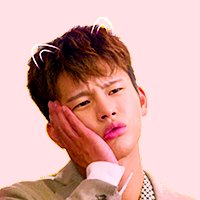Această recenzie poate conține spoilere
Some thoughts while watching the last episode...
"It's strange. The fear's receding."
"Receding?"
"Like waves receding."
—Kyoko to Shuji in episode 11
I'm obsessed with how when Shuji finds out Kyko is dying he basically makes a decision never to cry, and how his decision because he knows and feels that there's nothing he can do for her (i.e. he can't save her life), even as everything he then goes on to do is for her and her happiness in her last days of living; the one thing he feels he can do is "be strong" for her—and as messed up as that sounds it's actually something Kyoko appreciates because she feels (and even tells him) she can say anything to him—he can take her fear and her sadness and not run away from them, or from her. But she's also told him that she can hear his heart crying. And so it's like she appreciates the effort he's making to do the only thing he feels he can do for her and for his love for her.
You know how in Eriko Kitagawa's Long Vacation (1996, while this drama is from 2000) it's like this sustained moment of arrested development for Sena and Hayama—this period in their lives of waiting and hoping and nothing going the way they want, and so they act like it's a vacation from life until things start working out again? There's some of that going on here, in how Kyoko and Shuji go and hide out from her being sick: they live together and try to lead regular lives as if her death isn't impending. But in actuality, they're running away/not dealing head on with the situation right in front of them is like in fact how they intentionally decide to deal with it. What Kyoko says about fear receding like a wave, it's like when you're surfing and when you're under water and a wave comes at you—you're not supposed to fight it, but just go under it... The idea that when life gets difficult the thing to do is not to fight against it, but to go through it, to sustain the injury and go through it.
These "pause" moments in life is something Kitagawa returns to again and again, I think, bcause it's the same moment she explores in Orange Days (2004), right at the end of college when Kai's no longer a student and he's on the brink of having to become like a contributing member of society and he has to decide what that will look like for him. Kitagawa's interested in those liminal spaces. In Beautiful life it's the time before a death you know is coming, in Long Vacation it's the time after some success that was supposed to lead to brighter things but didn't, and in Orange Days it's the time before having to become a working adult.
*I wrote these thoughts down before finishing the episode, when we then see Shuji open the salon he and Kyoko dreamed of running together, and he goes surfing, and the show ends with a shot of him facing the waves. It's so cool how Kitagawa laid it all out so well, without being overt about it.
"Receding?"
"Like waves receding."
—Kyoko to Shuji in episode 11
I'm obsessed with how when Shuji finds out Kyko is dying he basically makes a decision never to cry, and how his decision because he knows and feels that there's nothing he can do for her (i.e. he can't save her life), even as everything he then goes on to do is for her and her happiness in her last days of living; the one thing he feels he can do is "be strong" for her—and as messed up as that sounds it's actually something Kyoko appreciates because she feels (and even tells him) she can say anything to him—he can take her fear and her sadness and not run away from them, or from her. But she's also told him that she can hear his heart crying. And so it's like she appreciates the effort he's making to do the only thing he feels he can do for her and for his love for her.
You know how in Eriko Kitagawa's Long Vacation (1996, while this drama is from 2000) it's like this sustained moment of arrested development for Sena and Hayama—this period in their lives of waiting and hoping and nothing going the way they want, and so they act like it's a vacation from life until things start working out again? There's some of that going on here, in how Kyoko and Shuji go and hide out from her being sick: they live together and try to lead regular lives as if her death isn't impending. But in actuality, they're running away/not dealing head on with the situation right in front of them is like in fact how they intentionally decide to deal with it. What Kyoko says about fear receding like a wave, it's like when you're surfing and when you're under water and a wave comes at you—you're not supposed to fight it, but just go under it... The idea that when life gets difficult the thing to do is not to fight against it, but to go through it, to sustain the injury and go through it.
These "pause" moments in life is something Kitagawa returns to again and again, I think, bcause it's the same moment she explores in Orange Days (2004), right at the end of college when Kai's no longer a student and he's on the brink of having to become like a contributing member of society and he has to decide what that will look like for him. Kitagawa's interested in those liminal spaces. In Beautiful life it's the time before a death you know is coming, in Long Vacation it's the time after some success that was supposed to lead to brighter things but didn't, and in Orange Days it's the time before having to become a working adult.
*I wrote these thoughts down before finishing the episode, when we then see Shuji open the salon he and Kyoko dreamed of running together, and he goes surfing, and the show ends with a shot of him facing the waves. It's so cool how Kitagawa laid it all out so well, without being overt about it.
Considerați utilă această recenzie?









